07579
Poli(etilenglicol)-bloque-poli(propilenglicol)-bloque-poli(etilenglicol))
surfactant, non-ionic
Sinónimos:
Poly(ethylene glycol)-block-poly(propylene glycol)-block-poly(ethylene glycol), Poly(propylene glycol)-block-poly(ethylene glycol)-block-poly(propylene glycol)
About This Item
Productos recomendados
Quality Level
impurities
≤0.5% water
mp
56-61 °C
hydroxyl value
6‑9 mg KOH/g
application(s)
detection
InChI
1S/C3H6O.C2H4O/c1-3-2-4-3;1-2-3-1/h3H,2H2,1H3;1-2H2
InChI key
RVGRUAULSDPKGF-UHFFFAOYSA-N
¿Está buscando productos similares? Visita Guía de comparación de productos
General description
Application
Legal Information
Storage Class
10 - Combustible liquids
wgk_germany
WGK 1
flash_point_f
Not applicable
flash_point_c
Not applicable
ppe
Eyeshields, Gloves, type N95 (US)
Elija entre una de las versiones más recientes:
¿Ya tiene este producto?
Encuentre la documentación para los productos que ha comprado recientemente en la Biblioteca de documentos.
Los clientes también vieron
Nuestro equipo de científicos tiene experiencia en todas las áreas de investigación: Ciencias de la vida, Ciencia de los materiales, Síntesis química, Cromatografía, Analítica y muchas otras.
Póngase en contacto con el Servicio técnico



